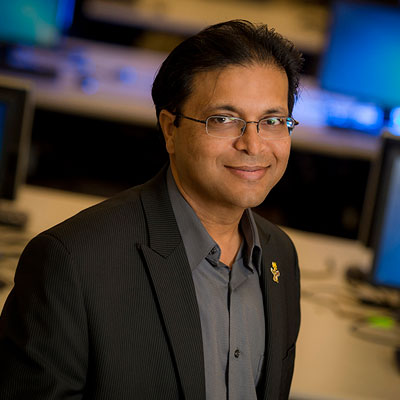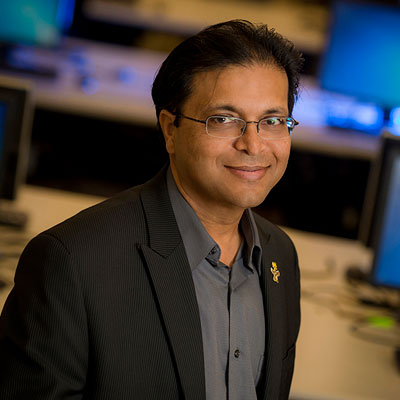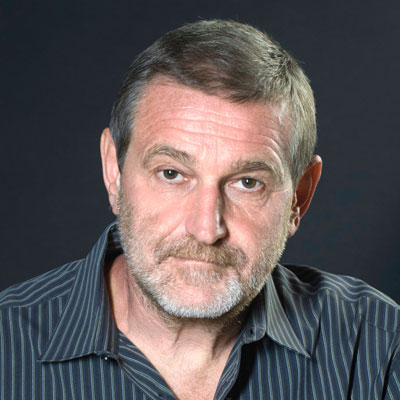
Two Professors in UC San Diego’s Computer Science and Engineering Department Named AAAS Fellows
Seven researchers at the University of California San Diego have been named Fellows of the American Association for the Advancement of Science (AAAS), the largest general science organization in the United States and publisher of the journal Science. Of those researchers, two of them are professors in UC San Diego’s Computer Science and Engineering Department.
Rajesh Gupta, Pavel Pevzner, and the other five Fellows at UC San Diego join a total of 416 AAAS members that have been awarded this honor because of their scientifically or socially distinguished efforts to advance science or its applications. New Fellows will be recognized during a ceremony on Saturday, Feb. 16, from 8 to 10 a.m. Eastern Time at the AAAS Fellows Forum during the 2019 AAAS Annual Meeting in Washington, D.C. This year’s AAAS Fellows also will be formally announced in the AAAS News & Notes section of the journal Science on Nov. 29, 2018.
New fellows are nominated by the steering group of their respective AAAS sections, by three existing fellows or by AAAS’s chief executive officer. Each steering group reviews the nominations of individuals within its respective section and a final list is forwarded to the AAAS Council, which votes on the aggregate list.

Rajesh K. Gupta, a distinguished professor of computer science and director of the Halıcıoğlu Data Science Institute (HDSI), is recognized for “distinguished contributions in design of embedded systems and hardware-software co-design, and leadership in research administration.” Gupta’s research focuses on cyber-physical systems such as smart buildings. He leads the National Science Foundation-supported project MetroInsight on city-scale sensing data for improved services; and serves as co-principal investigator on Computing on Network Infrastructure for DARPA’s Semiconductor and the Research Corporation Center. Methods and tools he developed for the design of microelectronic chips are now used in standard practice for building semiconductor chips. Gupta was instrumental in the creation of HDSI as an academic unit. He holds the Qualcomm Endowed Chair in the Department of Computer Science and Engineering, and the international chair for France’s National Institute for Research in Computer Science and Automation (INRIA). He is an IEEE and ACM Fellow.

Pavel Pevzner, a distinguished professor and the Ronald R. Taylor Chair in the Department of Computer Science and Engineering, is being recognized “for seminal contributions to computational molecular biology and for leadership in bioinformatics education.” His algorithmic ideas have been incorporated into many of the tools used in bioinformatics. Pevzner works in the field of computational molecular biology, where he developed pioneering algorithms for decoding the sequences of genomes, antibodies, and antibiotics. In addition, Pevzner is a pioneer in online bioinformatics education. He co-developed the popular online Bioinformatics and Algorithms specializations on Coursera and edX based on a textbook “Bioinformatics Algorithms: an Active Learning Approach” that was adopted in about hundred universities worldwide. Pevzner is a Howard Hughes Medical Institute Professor, a Fellow of the Association for Computing Machinery and has received the Senior Scientist Award from the International Society for Computational Biology.

